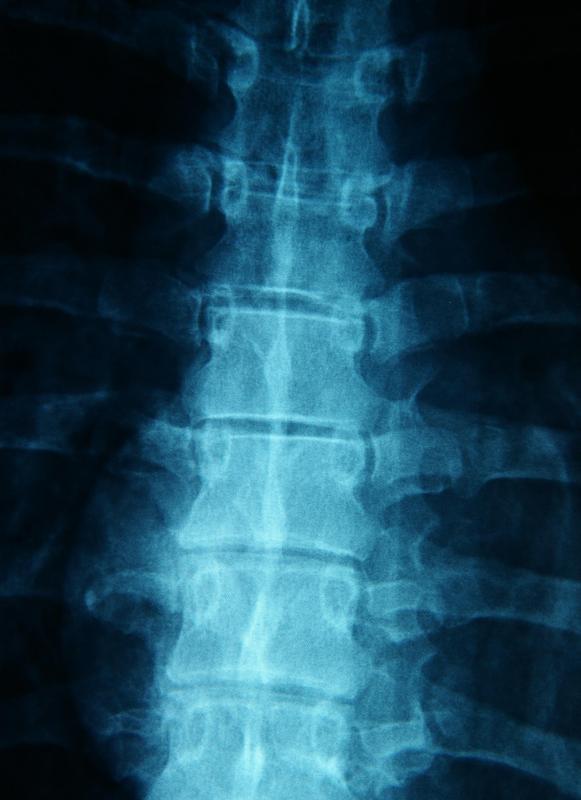At WiseGEEK, we're committed to delivering accurate, trustworthy information. Our expert-authored content is rigorously fact-checked and sourced from credible authorities. Discover how we uphold the highest standards in providing you with reliable knowledge.
What Is a Posterior Disc Herniation?
A posterior disc herniation is damage that occurs in the lower lumbar area of the spine, which is the lower portion of the back. The spine is made up of vertebrae, or bones, that are cushioned by discs. One of these discs may become herniated when a portion of its soft center bulges outward. Often called a slipped or ruptured disc, this condition can cause mild to severe pain, as well as possible numbness and incontinence.
Some risk factors can contribute to developing a posterior disc herniation, such as excess weight and advancing age. People who work in occupations that require repetitive motions such as lifting and twisting are also at a higher risk for this back injury. It can occasionally be caused by falling or a sudden injury. Most patients, however, develop this condition gradually as the vertebrae and discs suffer from wear and tear.

Not everyone who has a posterior disc herniation will be aware of it unless it shows up on an x-ray. Those who do not experience pain and other symptoms are unlikely to require surgery to correct the problem. If the disc presses on a nearby nerve, however, it may lead to pain, numbness, and a tingling sensation that stretches from the buttock down the leg. This particular condition is called sciatica, and it often results from a disc herniation in the lower spine.

Severe cases of a disc herniation can result in additional complications. Cauda equine syndrome is rare, but can lead to urinary and fecal incontinence. Another complication, called saddle anesthesia, results in numbness to the inner thighs and surrounding body parts. Patients who have any of these severe symptoms, or those with persistent pain should see their doctors right away.

After diagnosing a person with a posterior disc herniation, the doctor will likely recommend using ice and heat therapy. Ice may be applied to the lower back for 10 to 15 minutes every few hours, followed by a heating pad for the same length of time. Patients in severe pain should rest for a few days, although too much rest can aggravate the pain by weakening the muscles. A physical therapist can demonstrate certain exercises to strengthen the lower lumbar region.

Nonsteroidal anti-inflammatory drugs (NSAIDs) such as naproxen may be recommended to alleviate mild to moderate pain. Those in severe pain may be prescribed stronger pain relievers, and possibly a cortisone injection. If the herniated disc is compressing a nerve, the patient may take muscle relaxants or nerve pain drugs. Infrequently, patients who continue to experience problems with a posterior disc herniation may need surgery where an artificial disc may be implanted, or the surgeon may fuse the affected vertebrae together.
AS FEATURED ON:
AS FEATURED ON:
















Discuss this Article
Post your comments